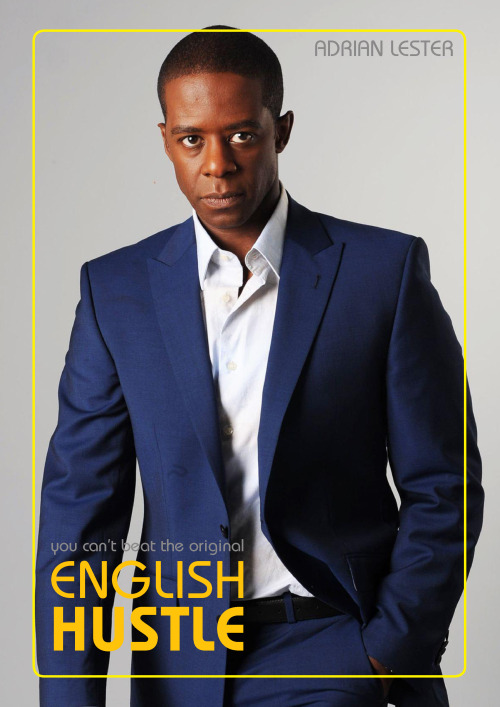 I’ve seen this lament on a few more places now: why bother having a comment box?
I’ve seen this lament on a few more places now: why bother having a comment box?
We’ve just had someone tell us at Lucire that there is no such person as Princess Catherine. Well done. We all know that technically there is no such person, if one is referring to the wife of Prince William, but was it worth a comment, when common usage overrides the technical aspects of heraldry for publications like ours? (How often did anyone see the Queen Mother referred to as the Princess Albert?) Am I meant to be impressed that someone possesses everyday knowledge, were we expected to succumb to the whinge, or does this simply highlight the writer’s intolerance?
If in communicating, you create a problem, then you haven’t properly communicated. And in the communication business, Princess William could create a problem.
Was the writer not alive when the European media insisted upon Lady Di right up until her death, or, for that matter, unaware that Princess Di and Princess Diana became the everyday convention, even though both were technically incorrect? Or did (s)he approach every medium to inform them of Princess Charles?
A fellow New Zealander ignored the point of one post on this blog to tell me that it’s not Reuter, but Reuters. Funny, considering he and I are roughly the same age, and would have grown up in an age when ‘NZPA/Reuter’ was commonly in our newspapers (and in those days when people read daily dead trees, the form Reuter became conventional in New Zealand). Reuters, as we know it today, long after it formalized its company name, still made products such as Reuter Textline into the 1990s—and given that this person is also in the media, you’d expect he’d know. (Even the Reuter Textline terminals said they were Reuter Textline.)
The appending of the s to establishments has frequently been a bugbear. Not enough to write to people about (unless one is the Apostrophe Protection Society), but the disappearance of the apostrophe in Harrod’s, Selfridge’s and Debenham’s, and the confusion of the shops that were branded Woolworth in some countries and Woolworths in others, surely would lead to a 2011 where any form is acceptable depending on the experiences of the writer and personal preference. The exception to this, of course, would be a direct citation about the company itself, where presumably one would follow whatever was on the Companies’ Register, in which case the information service would be Thomson Reuters Corp.
I used to think I was a bit of a smart-arse, but I don’t go around American blogs telling them they misspelled defence (though Americans have quite publicly complained to me in their role as self-appointed guardians of the language), telling people that Prince Harry does not exist, or write to the Financial Times on the continued misuse of the word billion. (Note: milliardaire is very hard to say.)
I have pet peeves, but I deal with them in my own little world and in my own publications. I make fun of some mistakes out of humour (Font Police surely is evidence), and I will get on my high horse about house styles and spelling when either happens to be the topic. If I’m responding to an article or a blog post, then isn’t it more productive, in furthering knowledge, to address the point, presume reasonable intelligence on the other party’s behalf (till proved otherwise), and not get stuck on minutiæ? Errare est humanum, after all, and no, I never studied Latin.
Incidentally, checking our visitor stats, Princess Catherine is the most searched-for way to refer to the former Kate Middleton after April 29; Duchess of Cambridge is second; and no one to date has searched for Princess William among the 1·1 million monthly pageviews, just as no one searched for Princess Charles to get to stories on our websites in the 1990s. So call all of us common. As long as do not refer to the Queen and Prince Philip as ‘Their Majesties’, which the 43rd American president did, I think we should be given a pass.
Over this last week, the Lucire-mobile has been the BMW 650i Cabriolet, a car I had the honour of seeing at the same time as four press colleagues at its New Zealand launch in March. (LaQuisha Redfern has asked me to note that there is sufficient headroom for 6 ft 5 in drag queens.) Cabriolets do turn heads, even in winter, and I thank whomever it was for writing a note that made me smile and leaving it under a windscreen wiper: ‘Nice ride, Jack.’
The car buff question here is: would I have received the same note in the previous-generation 6-series?









Oh dear.
You may recall that etymology is a bit of a hobby of mine, but I’m quite confused about the difference between “whine” and “whinge”.
I consulted the Online Etymology Dictionary and found that although they have quite similar meanings, they each evolved from a dialectic split: whine from Old English “hwinan”, and whinge from “hwinsian”, which is from the northern dialect of Old English.
Can’t split hairs much finer than that, would you? When I got past the title and really read the article, then I recalled again what a dizzying field linguistics really is, and not just in the area of differences between British and American (U.S.) English. Language as a living, evolving means of communication routinely defies convention. I appreciate grammar and syntax, especially when it helps to communicate across disparate cultures, but… well, there’s a gap between written language and spoken language for many reasons beyond what I’ve just implied… and that would really take a post of my own to explore. And yes, milliardaire just doesn’t roll off the tongue. Probably the quickest and easiest example right there.
I thought about using the word whining when I was going through the dictionary. And going back to dialectic differences in Old English is very fine indeed!
I don’t mind the differences—I have to admit American English makes more sense in so many cases, e.g. maneuver versus manœuvre. Even among British English there are issues, such as -ize versus -ise (the latter, to me, is French, but most Commonwealth countries would prefer it). I’ll cringe at typos but I would not have someone up on them—unless that were the topic or they were working for us.
Like you, with language evolving, I think we should accept there are differences, and it does seem, if some online comments are to be believed, that those who focus on the trivialities of usage have nothing to add to the original issue.
Incidentally, I’ve been enjoying your pictures on your blog.
Thank you! The move to the house has been quite exciting, and I’ve started putting up before and after pictures, as was requested.
Ask LaQuisha if that is with or without a hat or fascinator?
I recall being told, years ago, that colonial languages actually evolved more slowly than in the motherland, so that, in theory, American English was closer to British English of the 1700s than British English is today. I don’t know that I believe it, but it may be.
In any case, those little spelling and vocab differences are fun, occasionally irritating, and they exist. Neither is right or wrong. One way or another, with us or without us, language evolves. I agree with everything you said about communication, and addressing the POINT being THE POINT and nitpicking typos or minor errors revealing more about the one pointing them out than about the original writer OR whatever they’re trying to communicate. I used to do it. Now…well let’s just say I’ll always reserve the right to exploit a good typo for its unintended humor or double entendres. I’m no saint. But I don’t edit others’ work for free, these days.
I have read that as well, Holly, and that the Bostonian accent is actually closer to how the English spoke centuries ago. It makes sense, because you see similar phenomena play out in other diasporas. The British insistence on -ise is a recent development, too; before WWII both sides of the Atlantic were happy with -ize (except in analyse and others where the Greek suffix was -lyse, or where the root word has an s, e.g. exercise or televise). Like you, I can’t be bothered changing others’ grammar or spelling as it doesn’t really advance things, except, as you say, where there may be unintended humour—and that’s where Font Police often comes in.
On the BMW’s headroom, Queen Olivia (as she now is) accommodated a beehive hair-do sans hat.